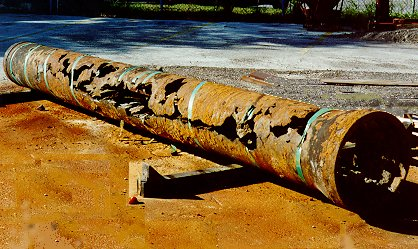 Menu
Menu
Industrial Corrosion Inhibitors
Industrial corrosion inhibitors are a necessary tool in the maintenance and repair of large systems that are exposed to corrosion. This book presents a comprehensive overview of the topic and acts as a useful reference for scientists and engineers. It is the first book of its kind to focus on this industry and offers a unique perspective on corrosion protection in the oil and gas sector. This book will be of particular interest to materials scientists, chemists, and electrochemists who are interested in the field of corrosion protection.
There are many factors that should be considered while selecting a corrosion inhibitor. These factors include its cost versus benefit, its real cause of corrosion, and its interactions with its environment. It should also be non-flammable, be soluble in water, and not form deposits on metal surfaces. It should suppress both localized and uniform corroding processes. It should also be safe for the environment and do not pose any risk of pollution or toxicity.
The major applications for corrosion inhibitors are in the oil and gas, power, mining, and construction industries. Among these, the oil and gas industry is the most important. Other key industries for the market include emerging economies such as China and Brazil, as well as the construction sector. Using corrosion inhibitors in these industries is a cost-effective and sustainable solution to corrosion problems. And with its long-term effectiveness, it should not have negative consequences for the environment, including toxicity and pollution.

Choosing an industrial corrosion inhibitor is an important decision, as the right one will protect exposed materials while maintaining its effectiveness under extreme operating conditions. It should not increase the corrosion rate dramatically either in a high-risk environment or a low-cost application. It should not form deposits on metal surfaces and should be able to suppress localized and uniform corroding. Lastly, it should not have any harmful effects on the environment or create any problems.
Several industries are driving the market for corrosion inhibitors. The oil and gas industry is the largest consumer. It accounts for 4% of the global economy. The power industry is the fastest growing. The construction sector will need to spend about USD 6.4 trillion if it wants to meet all of its goals. The demand for corrosion inhibitors is largely driven by the construction market. In the oil and gas industry, these products are used in different stages of production, and in many industries.
Corrosion inhibitors are available in various forms. The best inhibitors are those that can protect all exposed materials and maintain their efficiency even in high-risk environments. The right one must be effective for a long time and have a low cost-benefit ratio. Inhibitors are typically effective for a specified amount of time, and should not contain any toxic chemicals. The most efficient corrosion inhibitors will not only protect exposed materials but also reduce the risk of re-corrosion.
